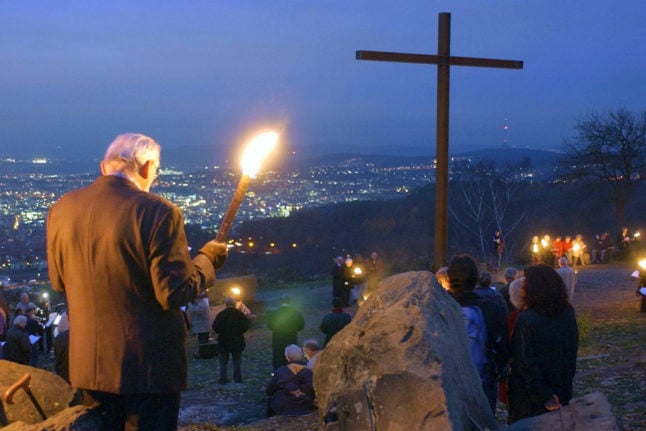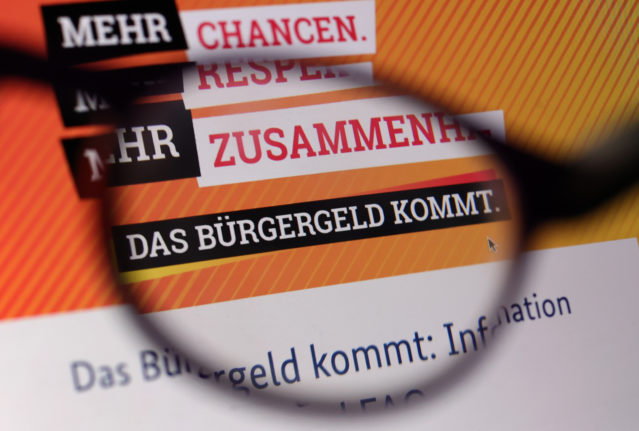When does it take place?
The “Buß- and Bettag” (Day of Prayer and Repentance) always takes place on the Wednesday before the Ewigkeitssonntag (Eternity Sunday), also called Totensonntag. That’s the Sunday when the dead are commemorated – and it’s a week before Advent starts (on November 28th this year).
In 2021, the Day of Prayer and Repentance falls on Wednesday November 17th.
Meaning
Let’s take a closer look at the German. “Buße” can wrongly be associated with penalties such as “Bußgeld” (penalty fee) but it actually refers to its religious sense, meaning the reorientation of a human.
This means that a person must show remorse for their sins and reflect on their faith in God (Theism).
READ ALSO: How you can make the most of Germany’s 2022 public holidays
Origin
“Buß- und Bettag” is a Protestant memorial day.
It dates back to the Middle Ages, where this day was summoned upon when the country was in a state of crisis or adversity.

Numerous protestants partaking in the church service for the “Buß- und Bettag” in Munich. Photo: picture alliance / dpa | Birgit Haubner
Purpose
Its purpose is to call on people to pray and consider their faith.
There are three parts to the practicing of this holiday.
Firstly, the church intercedes sinners who feel guilty before God. Secondly, this holiday tests one’s consciousness before God. And lastly, the church should show its guardian function and devotion towards its people.
Why is it not celebrated Germany-wide?
“Buß- und Bettag” used to be celebrated across the German-speaking territories and beyond. In 1878, for example, it was celebrated in 28 countries.
During that time, the “Buß- und Bettag” had not yet received a fixed date but was selected individually by the country. It was only in the “Reichs Gesetz” in 1934 that it was deemed a public holiday in the German Reich.
However, it was later abolished by most countries and eventually only Saxony kept this holiday.
How is it celebrated nowadays?
In most German states, holiday laws permit that religious employees can take this day off if they request it.
READ ALSO: These are the ‘special days’ when you can get paid time off in Germany
These employees luckily do not have to take this holiday as part of their numbered vacation days, but they have to forgo their payment for this day.
In Bavaria “Buß- und Bettag” is a public holiday solely for school students, whereas in Saxony, it is a public holiday for everyone.
We updated this story in 2021.




 Please whitelist us to continue reading.
Please whitelist us to continue reading.
For this public holiday, people in Saxony have to pay 0.5% more disability insurance.